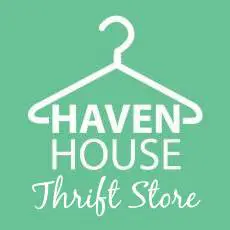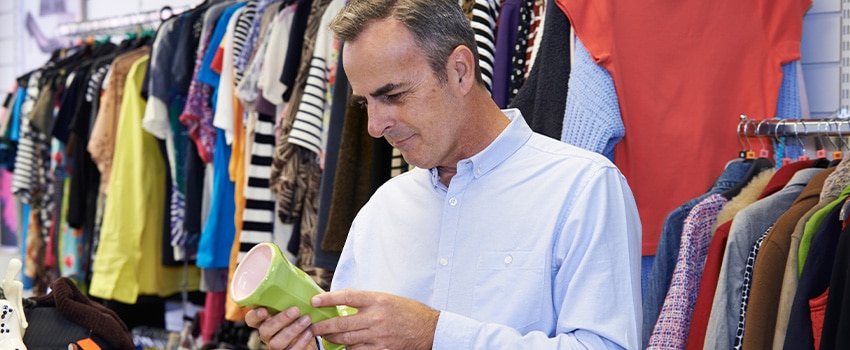The world of fashion is not just about the selection and styles of clothes.
Shopping for clothes is always fun and exciting. With the array of colors and choices available, it’s not surprising that one of the world’s growing problems is textile waste. If you’ve heard the words ethical, sustainable, and slow fashion, you might want to know the differences between these three concepts.
Haven House is here to freshen your fashion vocabulary. With the many terms used to define fashion, the meanings of each term often overlap. Find out about the differences between ethical, slow, and sustainable fashion here.
Fashion Vocabulary: What Do These Words Mean?
Before we dwell more on the meaning of slow, sustainable, and ethical fashion, let’s first define these words here in our fashion vocabulary guide.
Slow Fashion
Our first term in our fashion vocabulary 101 focuses on the quality of the garment, design, style, and how the clothes are made. Slow fashion is the opposite of fast fashion — replicating catwalk styles and celebrity trends and mass-producing them.
People who practice this concept steer clear from the rapidly changing trends in the fashion industry. They value the durability of the clothing and the timelessness of the style — allowing them to wear the clothes for years to come.
Sustainable Fashion
The next entry in our fashion vocabulary 101 is sustainable fashion, which refers to the aftermath of the overall clothing production to the environment. With this type of fashion, some of the factors considered are the following:
- Packaging
- Energy Reduction
- Dyes
- Water and Waste Treatment
- Recycled Materials
- Pesticides
Ethical Fashion
The last term in our fashion vocabulary is this type of fashion. Ethical fashion involves the following:
- The way the materials used were grown
- The way workers were treated and paid
- The overall safety of the employees (e.g., no child labor, slavery, worker abuse, and sweatshops)
Fashion Vocabulary: Diving Deeper Into Their Meaning
Now that you have a quick rundown into the following words in our fashion vocabulary 101, it’s time to learn more about these fashion concepts.
Slow Fashion: Clothing Pieces Made to Last
Fast fashion is becoming an uncontrollable problem. Famous clothing fast fashion brands drop new clothing styles almost every week — less than 1% of this gets recycled. More often than not, fast fashion ends up in landfills.
First on our fashion vocabulary is slow fashion. This type of fashion bulldozes the entire cycle in the fast fashion industry — as this focuses on the following:
- Zero waste designs
- Slow production schedules
- Small batch collections
Instead of releasing short-term clothing trends, slow fashion focuses on styles that endure time by utilizing layers and creating versatile clothing pieces.
Sustainable Fashion: Caring for Earth in Style
Next on our fashion vocabulary is the sustainable type of fashion. With this, the focus is on the products and the entire process involved in making the items. It addresses the following:
- The manner the clothing items are made
- Who is involved in the making process
- How long will it take for the clothes before they reach the landfills
In a way, sustainable and ethical fashion are interconnected. Sustainable fashion encourages the use of locally-made and biodegradable fabrics — all of which have little to no impact on the environment. This fashion movement combats the repercussions of fast fashion by minimizing CO2, greenhouse gases emissions, and contributions to the climate crisis.
Ethical Fashion: With Great Fashion Comes Ethical Responsibilities
Many problems are surrounding the fast fashion industry, including forced overtime, child labor, exploitation of adult workers, unfair pay, and environmental damage. In this type of fashion, the focus is on the treatment of the people behind creating the clothing pieces.
It involves issues such as:
- Animal Welfare
- Fair Trade
- Sustainable Production
- Exploitation
- Working Conditions
There’s no clear-cut definition as to what it is, but one thing is for sure: this movement focuses on human rights, animal welfare, and the environment. In a nutshell, this type of fashion cares for those involved in the supply chain’s beginning until the end.
Fashion Vocabulary: Thrift Shopping
With our fashion vocabulary guide, we hope that we’ve shed light on these three fashion concepts. Now, is thrift shopping ethical and sustainable?
The fashion industry holds a significant percentage of waste produced around the world. Thrift shopping is a way to shop sustainably and build a wardrobe from scratch — ethically. When you buy pre-owned clothing, it won’t go through the entire manufacturing process — saving resources, workers, and animals along the way.
Haven House Thrift Store Is Here For You
Haven House is your partner in living a more sustainable, fashionable life.
There’s no need to feel guilty when shopping for new additions to your current wardrobe. Remember, only buy the things you need. Visit us today! If you’re looking for a thrift store in Panama City Beach, FL, Haven House is the place for you.




